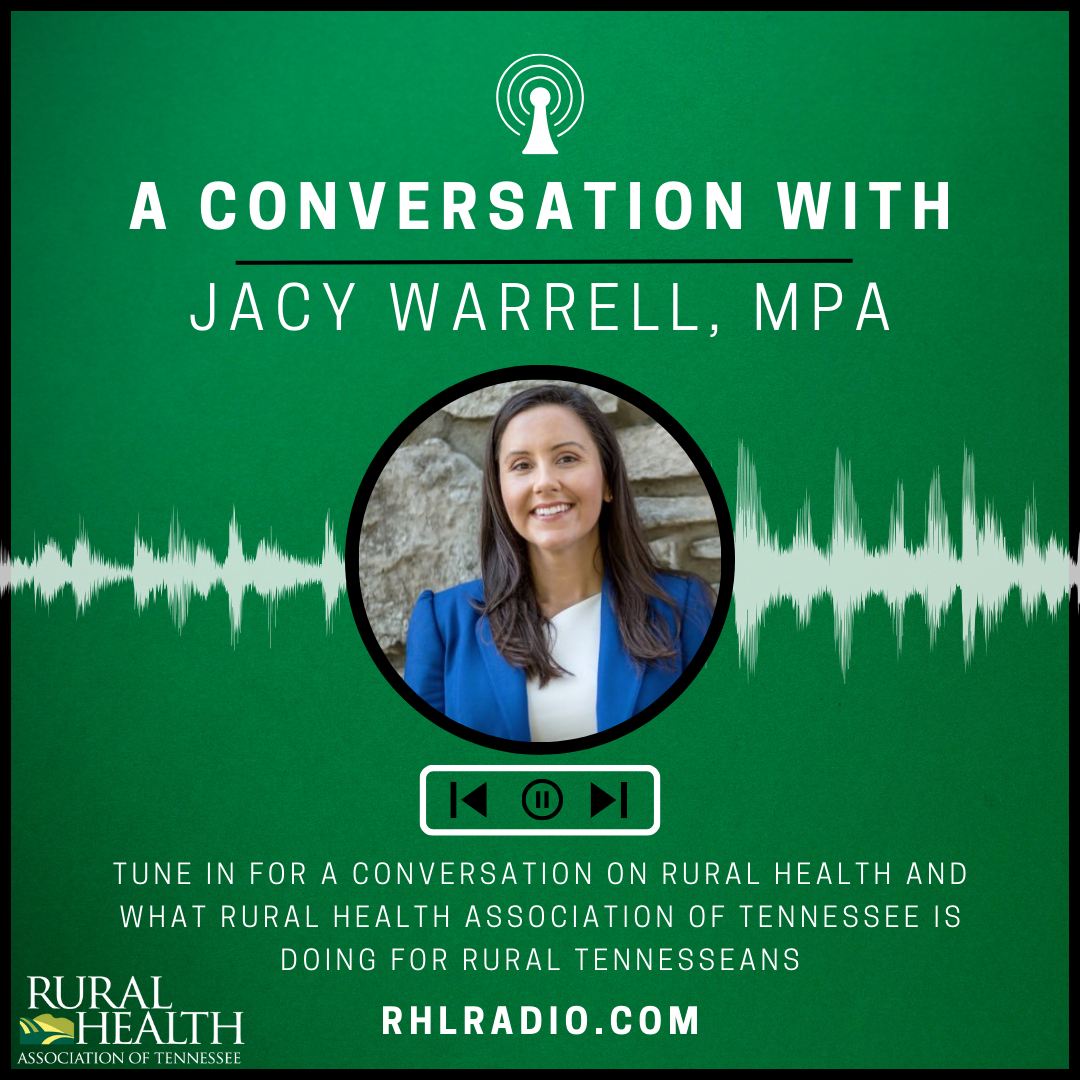The conversation with Jacy Warrell, the CEO of the Rural Health Association of Tennessee, provides valuable insights into the challenges and initiatives related to rural healthcare in Tennessee. It's clear that addressing the gaps in rural health is a top priority for her organization. Warrell emphasizes the importance of including rural communities in healthcare discussions and planning for the future of Tennessee. Rural areas make up a significant portion of the state and are home to a substantial underserved population. Inclusivity in these discussions ensures that the unique healthcare needs of rural Tennesseans are considered and addressed. She also sheds light on what Rural Health Association of Tennessee is doing to bridge those gaps.
valuable insights into the challenges and initiatives related to rural healthcare in Tennessee. It's clear that addressing the gaps in rural health is a top priority for her organization. Warrell emphasizes the importance of including rural communities in healthcare discussions and planning for the future of Tennessee. Rural areas make up a significant portion of the state and are home to a substantial underserved population. Inclusivity in these discussions ensures that the unique healthcare needs of rural Tennesseans are considered and addressed. She also sheds light on what Rural Health Association of Tennessee is doing to bridge those gaps.
The Rural Health Association of Tennessee has been actively involved in workforce development by awarding over a thousand certificates to high school and community college students. These certificates cover various healthcare careers, including Nursing Assistant, Phlebotomy, EKG, Patient Care Tech, and Community Health Workers. This program plays a crucial role in preparing individuals for healthcare careers, especially in rural areas where access to education and training can be limited.
The launch of the Doula Scholarship Training program in September 2023 is a notable initiative aimed at improving maternal health outcomes, particularly in the upper Cumberland Gap region. Doulas can provide essential support during childbirth, and ensuring access to doula services is especially important in rural areas where healthcare resources may be scarce.
The Rural Health Clinic Network serves as a crucial support system for clinics in rural Tennessee that may lack the resources and funding available to larger healthcare facilities like hospitals or Federally Qualified Healthcare Centers (FQHCs). By fostering a sense of community and collaboration among these clinics, the network helps ensure that rural residents have access to quality healthcare services.
The Rural Opioid Response Program is a timely initiative, given the opioid crisis affecting many rural communities across the United States. By bringing together prevention, treatment, and recovery partners, this program aims to address the opioid epidemic in rural Tennessee comprehensively.
Overall, this interview underscores the critical role that organizations like the Rural Health Association of Tennessee play in bridging healthcare gaps in rural areas. Their efforts in education, workforce development, maternal health, and substance abuse prevention are making a positive impact on the health and well-being of rural communities in the state. Additionally, the call for open dialogue and collaboration with all stakeholders is essential for creating a healthier future for all Tennesseans, regardless of where they reside.
To listen to more of this story click here.

